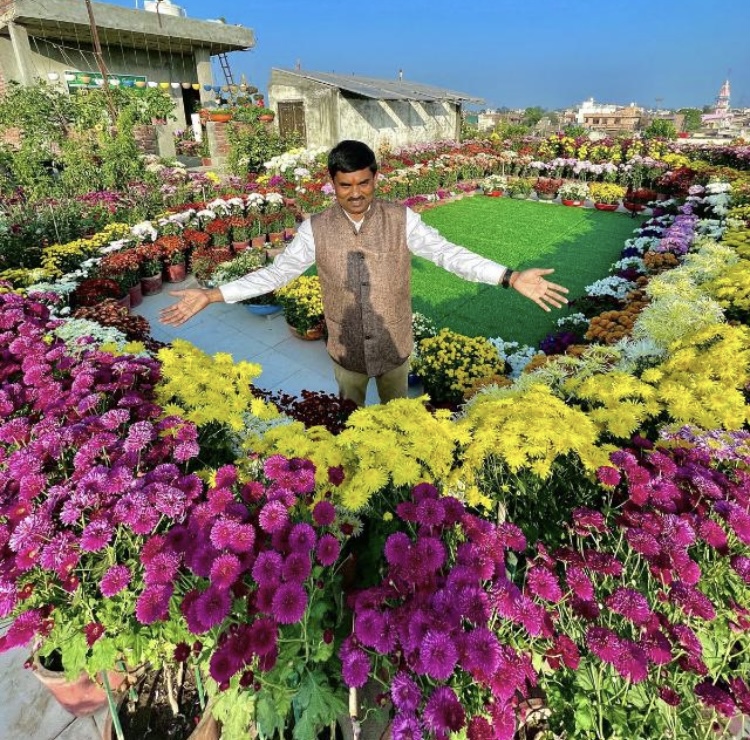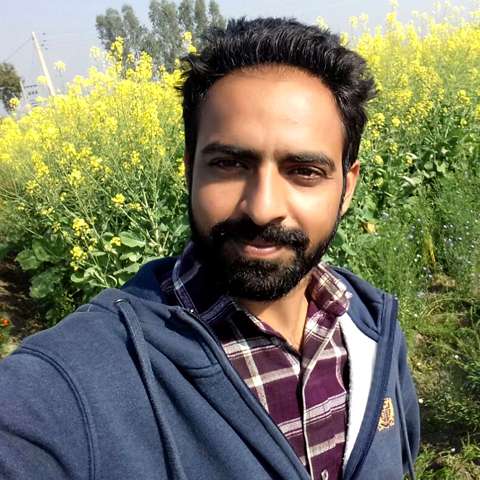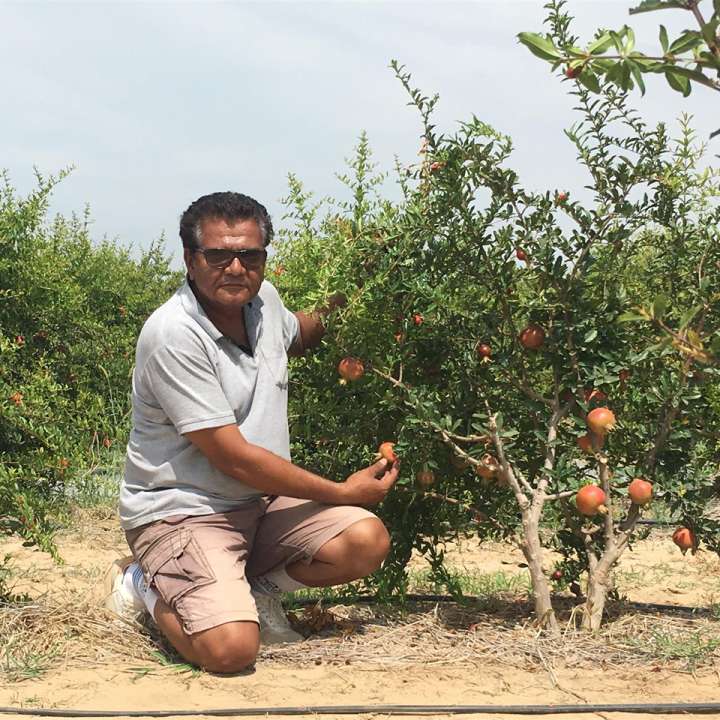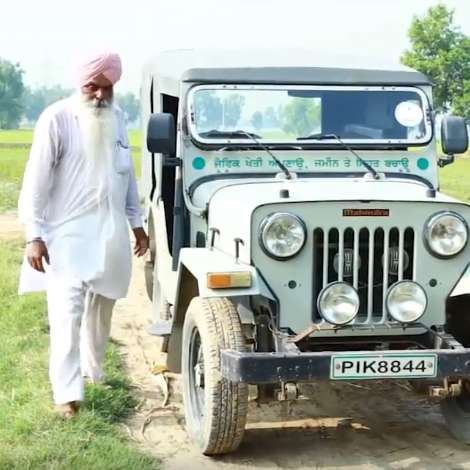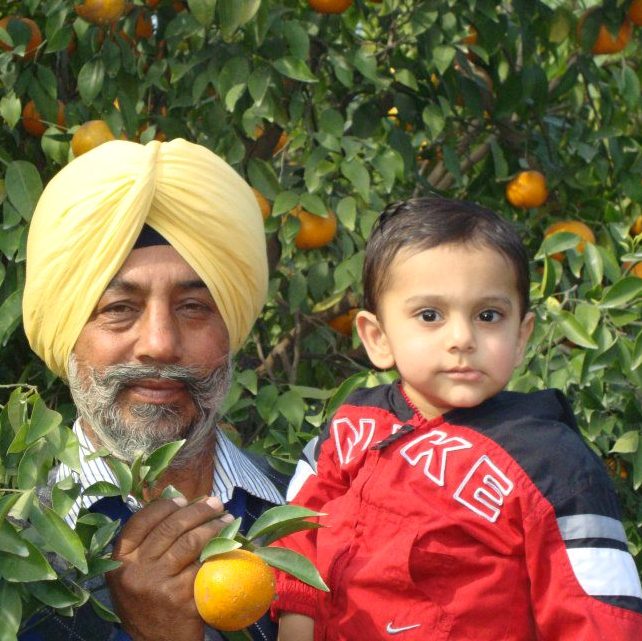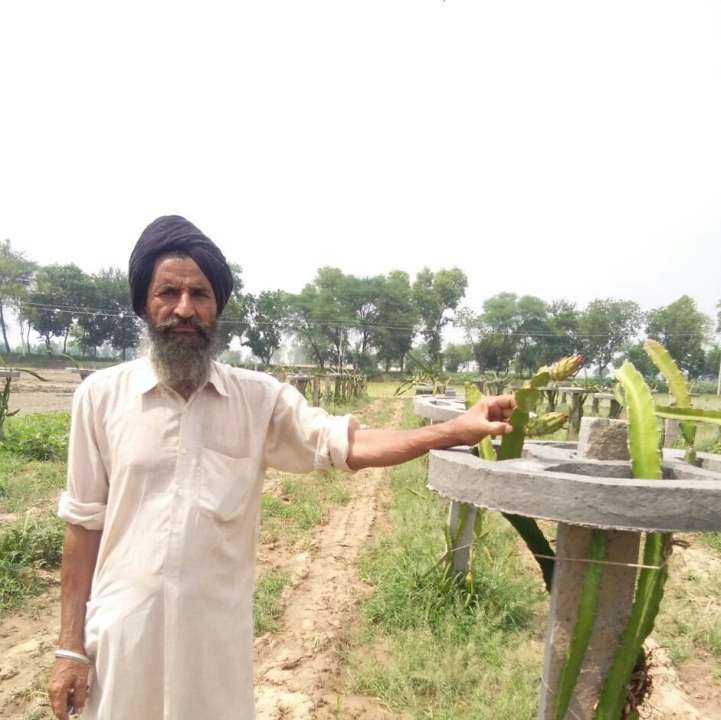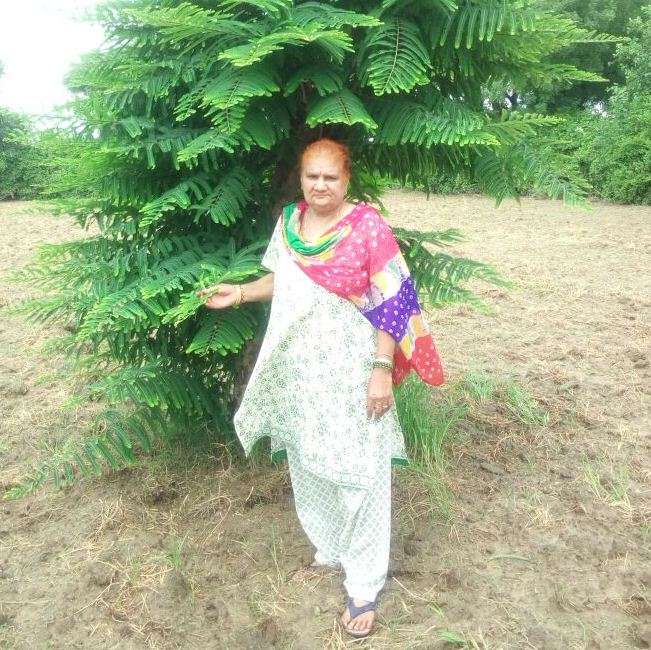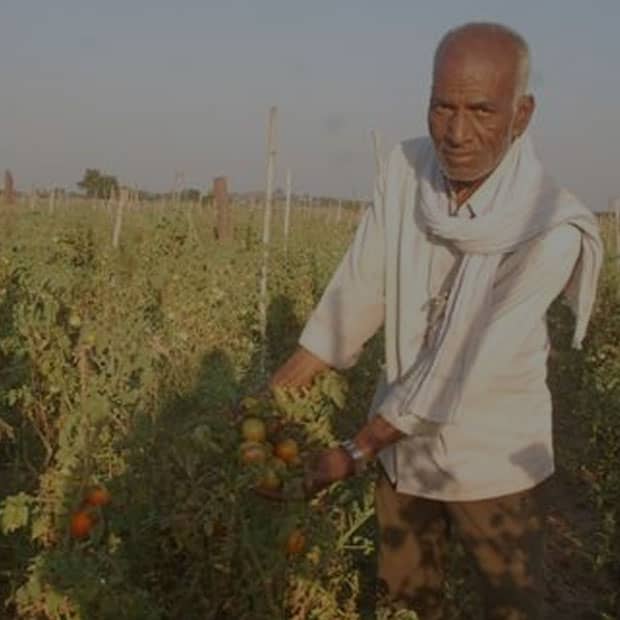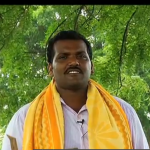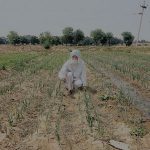The Blooming Terrace
As you can imagine, a beautiful garden is equivalent to a valley full of flowers. Can you imagine the same on a terrace? A terrace which showcases plants and flowers of a varied variety including hibiscus, jasmine, roses, orchids, sunflowers, dahlias, cacti, petunias, bougainvillea, chrysanthemums, dianthus, cineraria, and other types of blooming plants. You have to admit, it is a rather idealistic description.
Ram Vilas of Haryana facilitated the cultivation of tens of thousands of edible and decorative plants on his four-story terrace. Around four thousand buckets, containers, clay pots, cement barrels, and the like are neatly stacked on the green-matted terrace floor, which keeps things cool even when the sun is beating down.
A successful businessman by profession in the construction sector who built his passion for gardening into an inspiration for others. 25 years ago, when he started, it was just 8 pots which have grown to many hundred in numbers.
The humble beginnings
Mr. Ram Vilas spent a great deal of time and effort cultivating a beautiful terrace garden above his home, and he has been proudly displaying it to his guests via a video he filmed. When he finally chose to share them online, he found that they were instantly a hit on YouTube. Because of the positive response to his rooftop garden, he has been asked to make additional gardening-related films, especially instructional ones.
Therefore, the flowers he had planted began to spread to other gardens throughout the world. He started handing away his organic fertilisers in response to audience requests after they had failed to get the same results in their own gardens. As a result, a company was founded, and its product is today known as “Grace of God Organic.” In the year 2020, he established this label.
To this day, Ram Vilas ji may look across the world with pride knowing that he has assisted around twenty to thirty lakh individuals in reforesting the planet.
He really wants to help people through his platform to get quick results, practical solutions, and prompt replies, which are highly valued by individuals turning to the internet for home gardening advice.
Using his channel on YouTube, he teaches people about organic gardening and shows them how effective those methods can be.
He has been an inspiration to many amateur gardeners with his terrace garden, which has more than four thousand pots. He hopes to motivate and assist others through the presentation of his gardening methods’ successes.
He is able to cultivate a wide variety of edible plants. Rather than selling finished produce from his terrace garden, he offers consumers the chance to cultivate their own produce by purchasing plant seeds and young saplings.
Ram Vilas’s garden is home to a wide variety of plants and flowers, including seeds and saplings for all kinds of summer and winter flowers; seeds and saplings for all kinds of summer and winter vegetables; buds for all kinds of summer and winter flowers; and small trees for nearly every imaginable fruit and vegetable.
Ram Vilas himself cultivates all of the seedlings using only natural fertilisers. Chemical fertilisers are something he really opposes.
Total square footage of the land: 13,500
Ram Vilas has a YouTube channel with over 3 million followers where he discusses gardening and other topics of interest to his audience. Over the course of the previous two years, he has taught online gardening lessons to well over a hundred pupils.
His favourite leisure of gardening has deepened his enthusiasm and interest. A passion, which did not grow through the internet, videos, or learning. In fact, a skill which sharpened by giving consistent efforts and dedicated time to see the prosperity of results. People from nearby states like Maharashtra, UP, and Uttrakhand have shown keen interest apart from England and France who have paid a visit to his garden and learned from the actions undertaken.
From an early age, he had a passion for gardening that has only grown stronger over time. In particular, flowers of all hues captivated him. After seeing a field of bright blooms, he longed for the day when he could bring home a seedling and nurture it into maturity. This was the original inspiration for his outdoor patio. Tree and plant populations gradually grew in his small garden. For the past few years, he has also introduced a large number of common fruit and vegetable plants.
These blossoms maintain a healthy garden aesthetic while also lowering the air pollution Level. Even though Karnal is a much-polluted city, this terrace garden maintains its natural beauty and purity throughout the whole year.
Cabbage, beets, beans, cauliflower, zucchini, tomato, white brinjal, lemon, mushroom, radish, chilli, snake gourd, and ash gourd are only a few of the crops cultivated by Ram Vilas. Spinach, coriander leaves, mint leaves, basil, ashwagandha (winter cherry), strawberry, guava, dragon fruit, papaya, peach, mango, banana, plum, and strawberry are just some of the leafy greens and fruits he cultivates on his terrace.
Ram Vilas claims to collect five different kinds of them every day.
He uses handmade compost and fertiliser to grow all of his plants organically. There will be a short-lived increase in agricultural yield due to the use of chemical fertilisers he believes.
Mr. Ram Vilas’s cultivation is vast, but he does not consider gardening as his source of income. He is very happy to share his harvest with his friends, family and his neighbors but monetary sales is a strict no for him. “Sometimes people ask for a certain plant sapling which is also given for free unless they are any rare plants,” he says.
He states, “All the saplings are collected from garden nurseries and experienced gardeners from Haryana. I also have a habit of bringing plants after trips and visits made to various parts of the world.”
Ram Vilas especially believes for the motto of gardening is happiness and self-satisfaction. What is equivalent to the pleasure of seeing a new flower in a sapling that you planted? This is the only reason why he manages a garden despite his busy schedule.
Mr. Ram Vilas plans to add many more varieties to his already existing vast collection in the coming years in the hopes of inspiring people to grow their plants, which will also help in improving the air quality index of the city. “Despite the degrading air quality, my family at home manages to breathe better air. Mr. Ram Vilas hopes that people realise the importance of having greenery around them and put together a small garden,” he concludes.
He states, “When it comes to home gardening, people prioritize getting results and receiving practical solutions and quick responses when seeking online help. This is where we strive to excel”.
VISION
Ram Vilas wants to continue helping billions of people in building their dream gardens and ultimately bringing back the greenery and cleanliness of nature to where it was.
His viewers have been his biggest supporters, and this motivates him to generate and create more content to educate people about terrace farming. Ram Vilas never forces anyone to buy his products; he aims to provide people with organic solutions for their gardens.
Message for farmers
Ram Vilas firmly believes chemicals, which are cheaper, are the convenient option to follow, and should be replaced with organic manure as they have overall benefits for the betterment of society and the environment.


